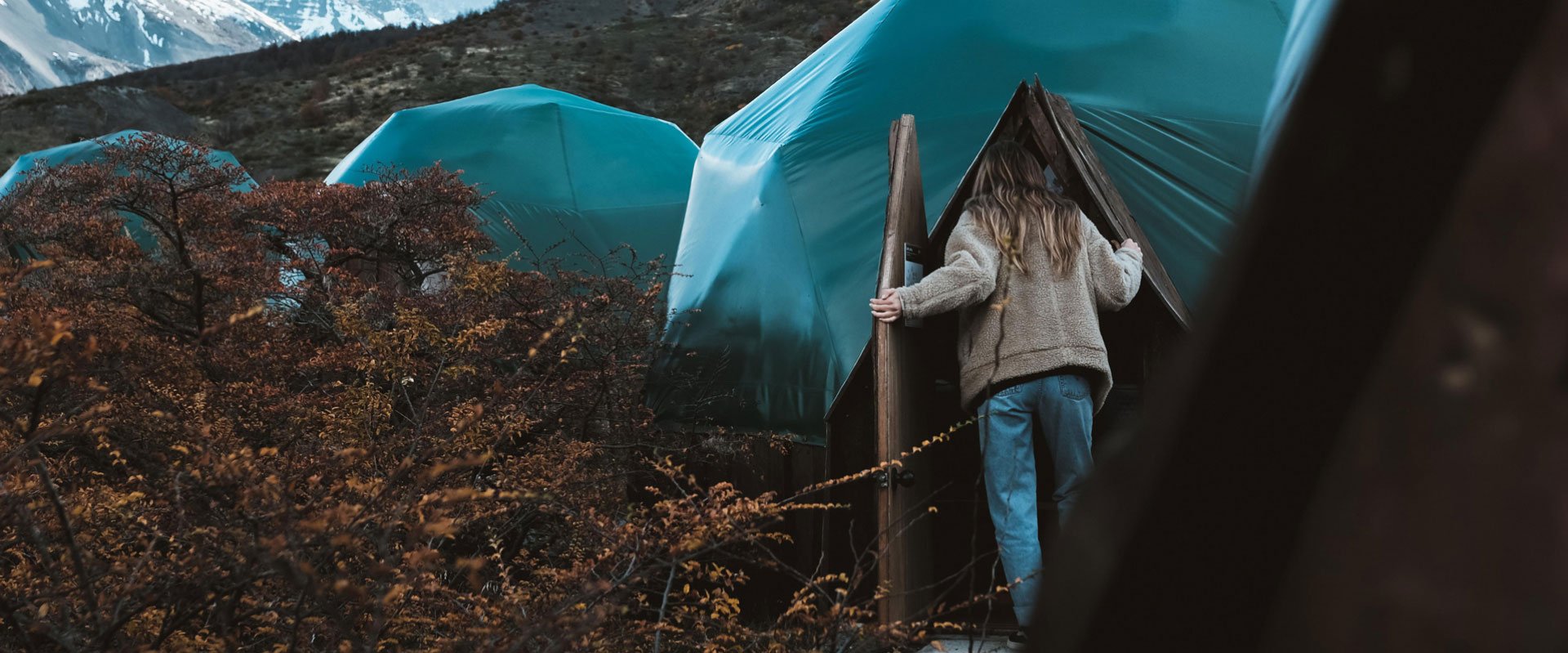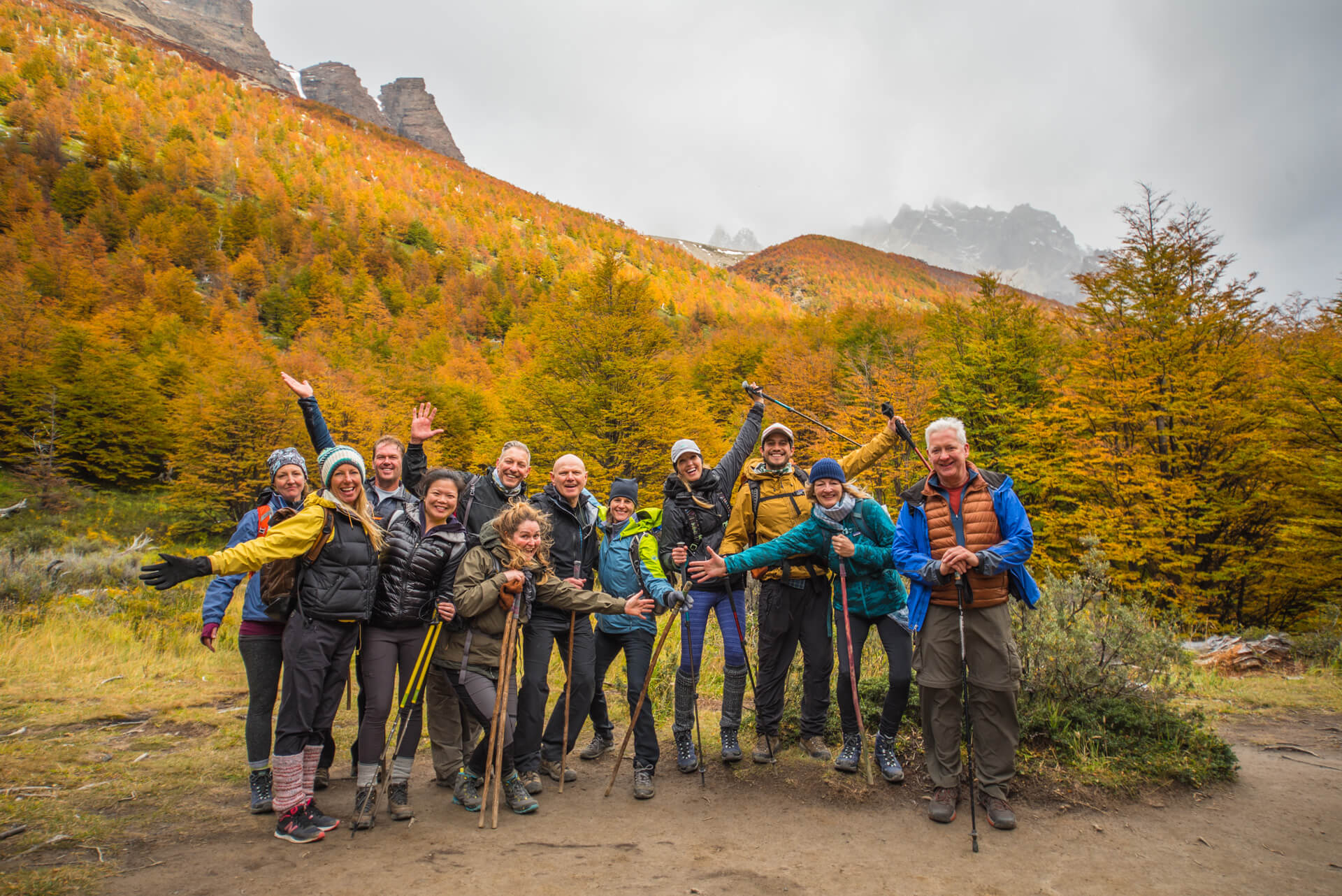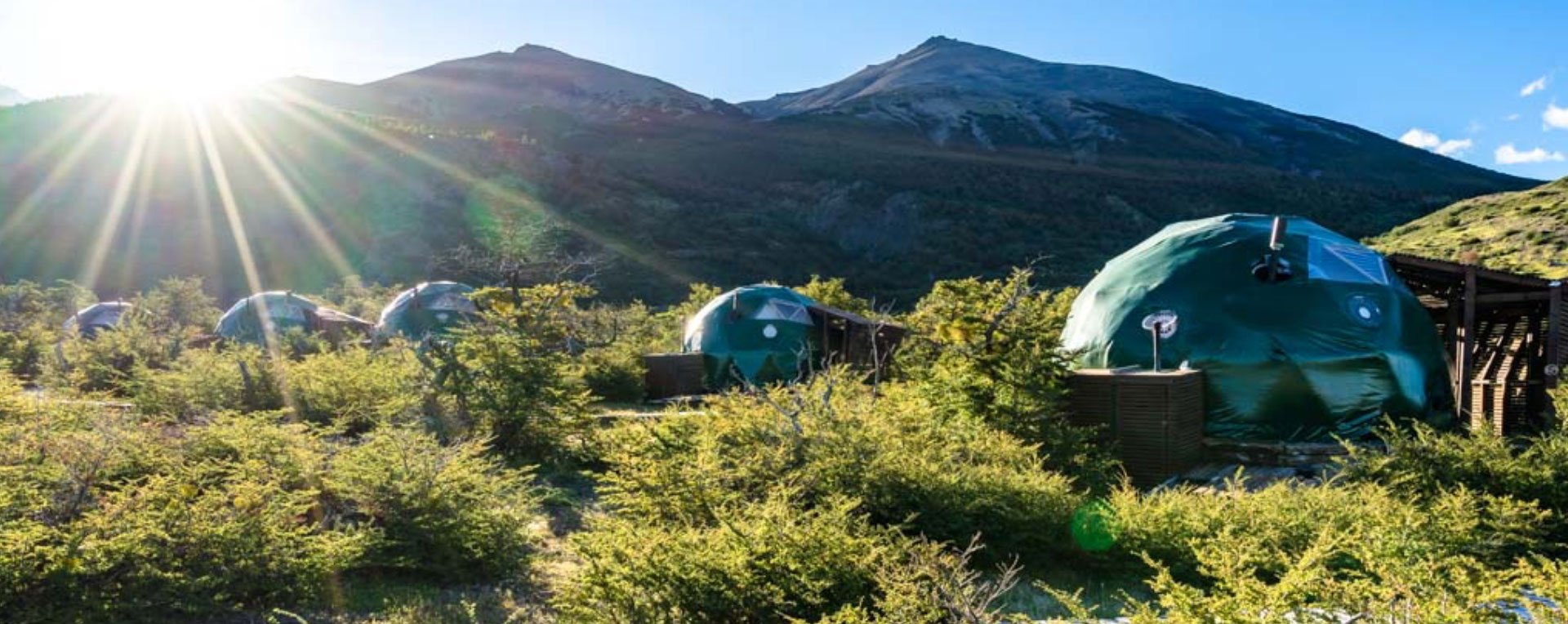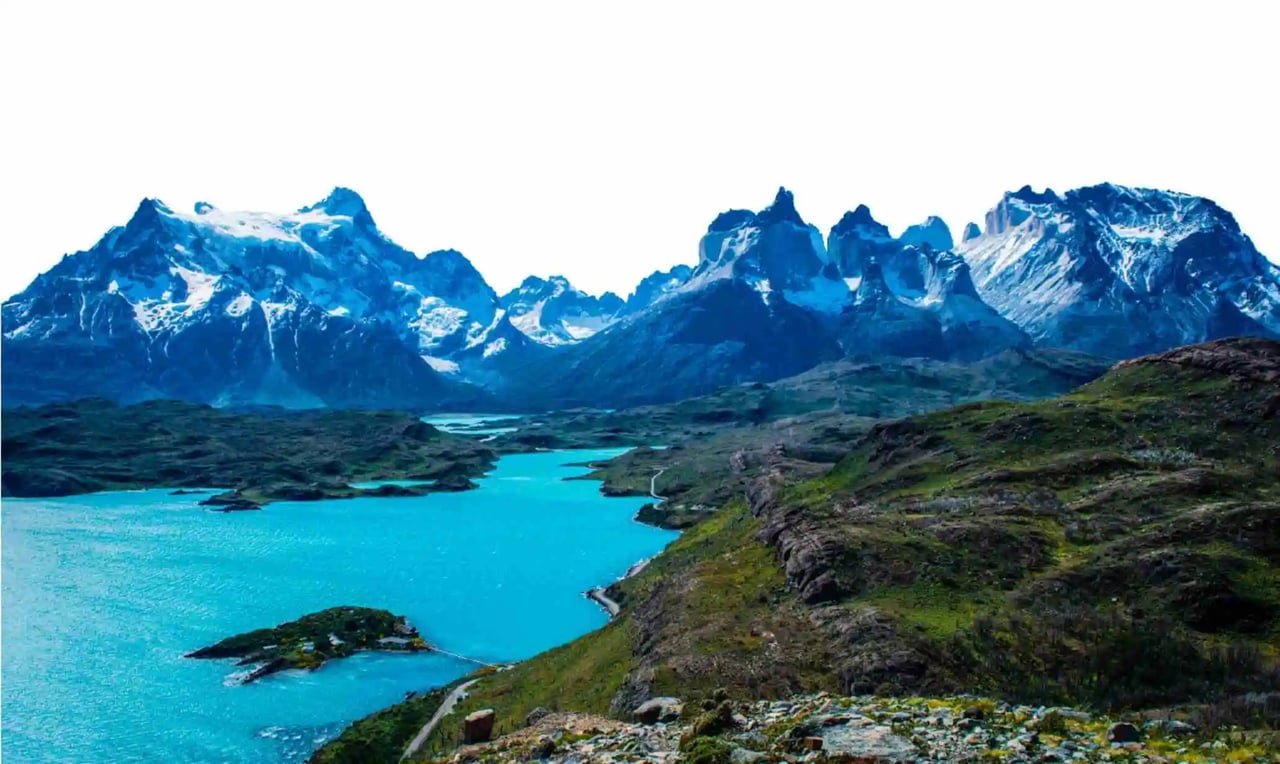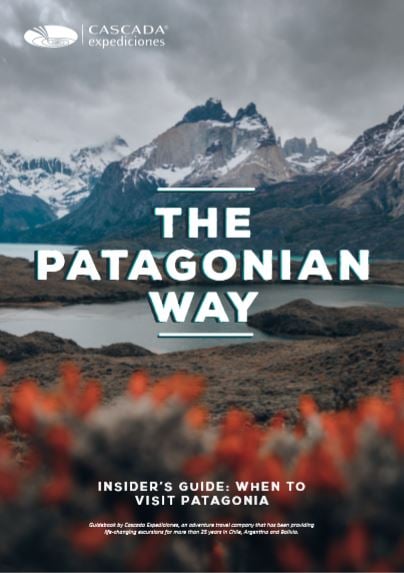What is sustainability? The most accepted definition is the one created by the Bruntland Commission: “Sustainable development is a development that meets the needs of the present without compromising the ability of future generations to meet their own needs”. At EcoCamp Patagonia, sustainability was an essential part of the concept of the lodge since the very creation of the hotel in 2001. And we knew since the very beginning it would mean constant efforts, with always new ways to improve. After all, no one is perfect!
.jpg?width=1000&name=Sunrise%20(1%20of%201).jpg)
Yet we made our path clearer while adopting the model of the 4Cs, so we consider the following aspects as part of our sustainable development: Culture, Conservation, Community and Commerce. All the projects you will find here respond to at least one of the 4Cs, and were designed in consideration of the fragile place where we are located: Torres del Paine National Park, in the very heart of Chile’s Patagonia. Oh! And if you have any comment on suggestion on new ideas we could implement to reduce our footprint, you’re welcome!
- Renewable Energy
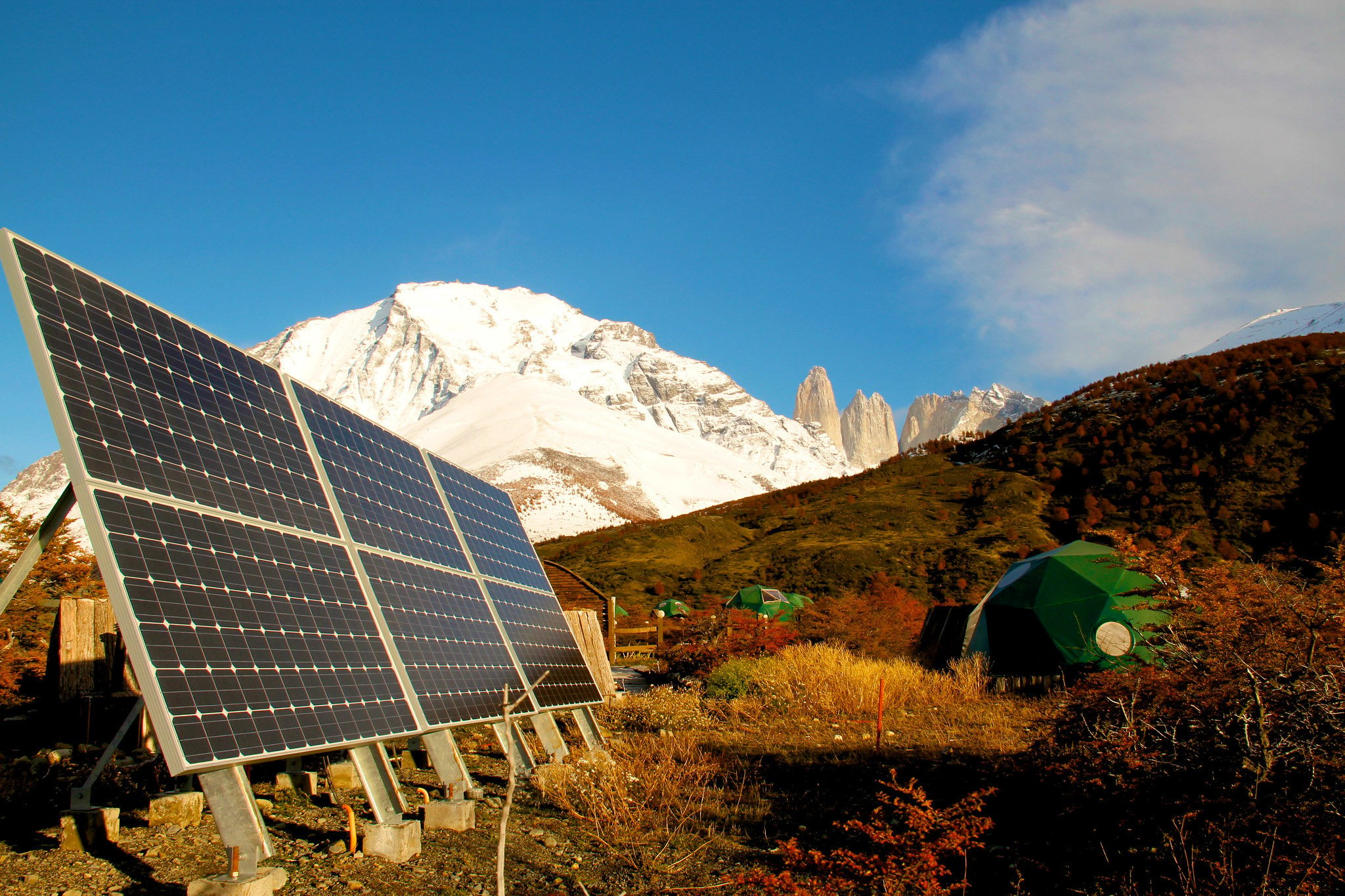
EcoCamp uses its unique location to generate energy. In average, 95% of the energy is renewable (the next 5% comes from an emergency gas generator, for ex. when the water freezes or the days are very short and cloudy in Winter). About 75% of the energy here is provided by water. There is a water intake in a nearby river and this water eventually enters a micro-hydro turbine at 10 liters per second. The 4 turbines can deliver up to 3500 Watts per hour. Then we use an inverter to switch from 24 Volts DC in the battery bank to 220 AC, the standard voltage in Chile. The photovoltaic panels do a great job in Summer with up to 17 hours of daylight in December. They provide 20-30% of the energy needed at EcoCamp. It’s enough to power the whole hotel – even the fridges in the kitchen – but we ask both guests and staff members to behave responsibly with the energy consumption. Hairdryers are not allowed!
- “Poo Flowers”
.jpg?width=3663&name=Sarah%20en%20EcoCamp%20(2%20of%201).jpg)
OK, that sounds weird. But this new project implemented during the 2019/20 season is symbolic of how great composting toilets are. At EcoCamp, each Superior and Suite Dome, plus the Shared Bathroom of our Standard Domes, are connected to composting chambers. Small solar panels are used to ventilate them. The bacteria that processes the compost is mixed every day with wood chips; then it’s kept heated to keep the compost process active. Compost is then used for soil regeneration and…poo flowers. Yes, poo flowers! We set up a small greenhouse where we plant flowers we can use to decorate our Communal areas. That compost is a wonderful fertilizer and those flowers are a beautiful result!
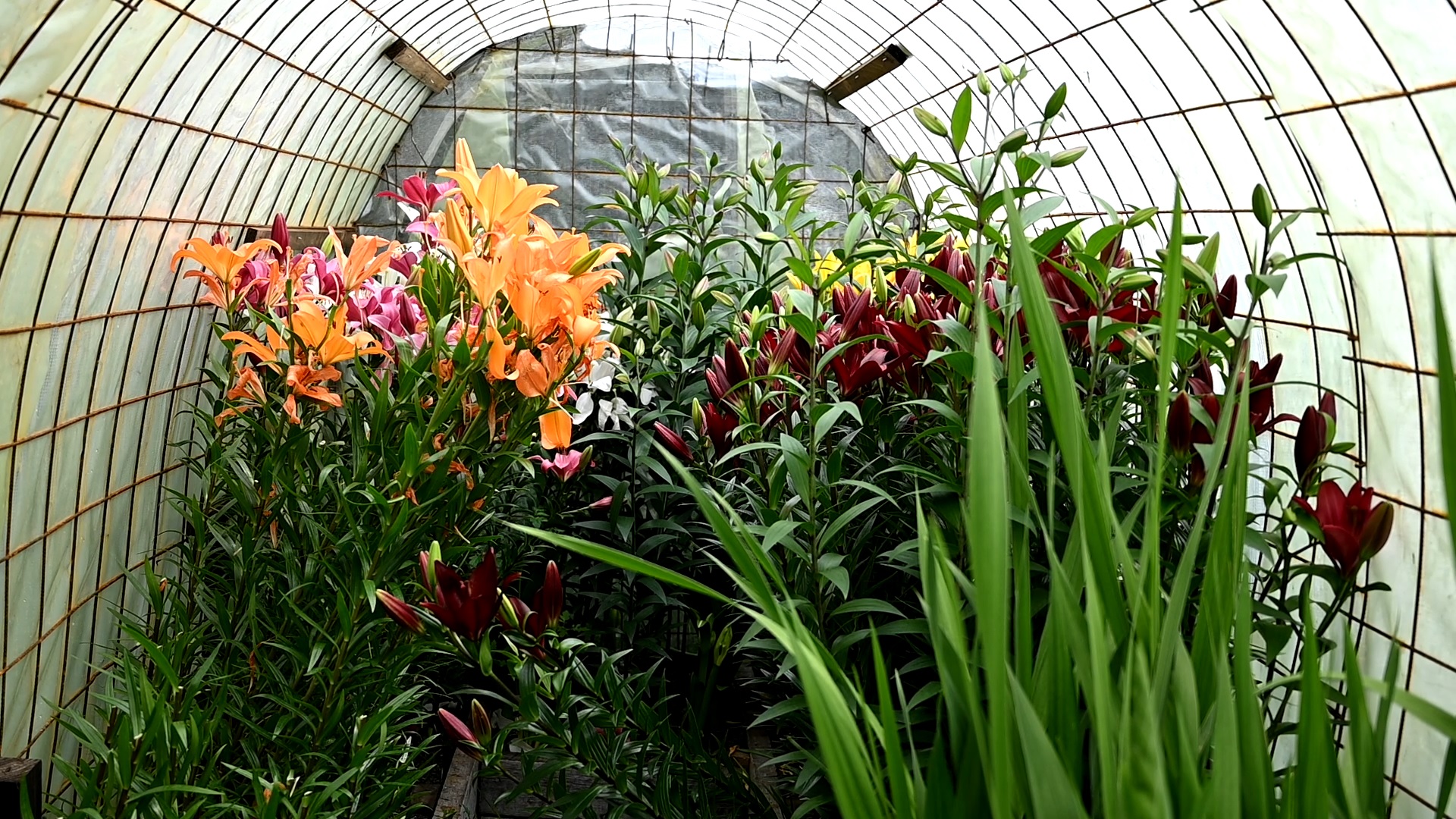
- No single-use plastics policy
Plastics contamination is one of the biggest issues in today’s world and because we inhabit a fragile place, it’s even more obvious we had to make a difference while adopting such a policy.
It starts with the lifestyle of our team members: every worker is trained to make a difference. The housekeeping staff stores everything (sheet, towels, etc.) in boxes instead of (plastic) bags. The trash bags you will find here and there are made out of an organic paper material that is biodegradable. We tell every guest to bring their own reusable water bottle (if they don’t we sell and lend those at EcoCamp). The daily BoxLunch has no plastics; instead guests bring a reusable lunchbox with them on the trail. And so one! The great things about that policy is that it can always be improved.
.jpg?width=5304&name=Merchandising%20(5%20of%201).jpg)
- Compost and more compost
Waste treatment is a global issue, especially when it comes to remote places like National Parks. We have done a great job reducing the amount of waste that is generated at EcoCamp and we recycle whatever we can thanks to a regional initiative (in Punta Arenas). The organic waste (fruits, vegetables and eggs) is separated and use to produce a high-quality compost we can then use for soil regeneration. That compost is also used for education projects as we sometimes invite local students growing small Lenga tree – a native species – around EcoCamp.
- Engage with the locals
.jpg?width=5885&name=Rosalba%20(1%20of%201).jpg)
While EcoCamp is located in the wilds of Torres del Paine, the nearest town – Puerto Natales, 130 km away – is a great place when it comes to searching fresh and organic products. We support small family businesses, including a bakery (that provides us the bread for our team members), a laundry service and even an ice-cream shop (for some delicious desserts). Our fruits and vegetables mainly come from local farmers, so the lettuce, tomatoes and strawberries you will find at EcoCamp have a name and last name. And because we are proud of the work of the locals, we regularly invite them at EcoCamp so they can see the outcomes of this collaboration!
- Give back to the area
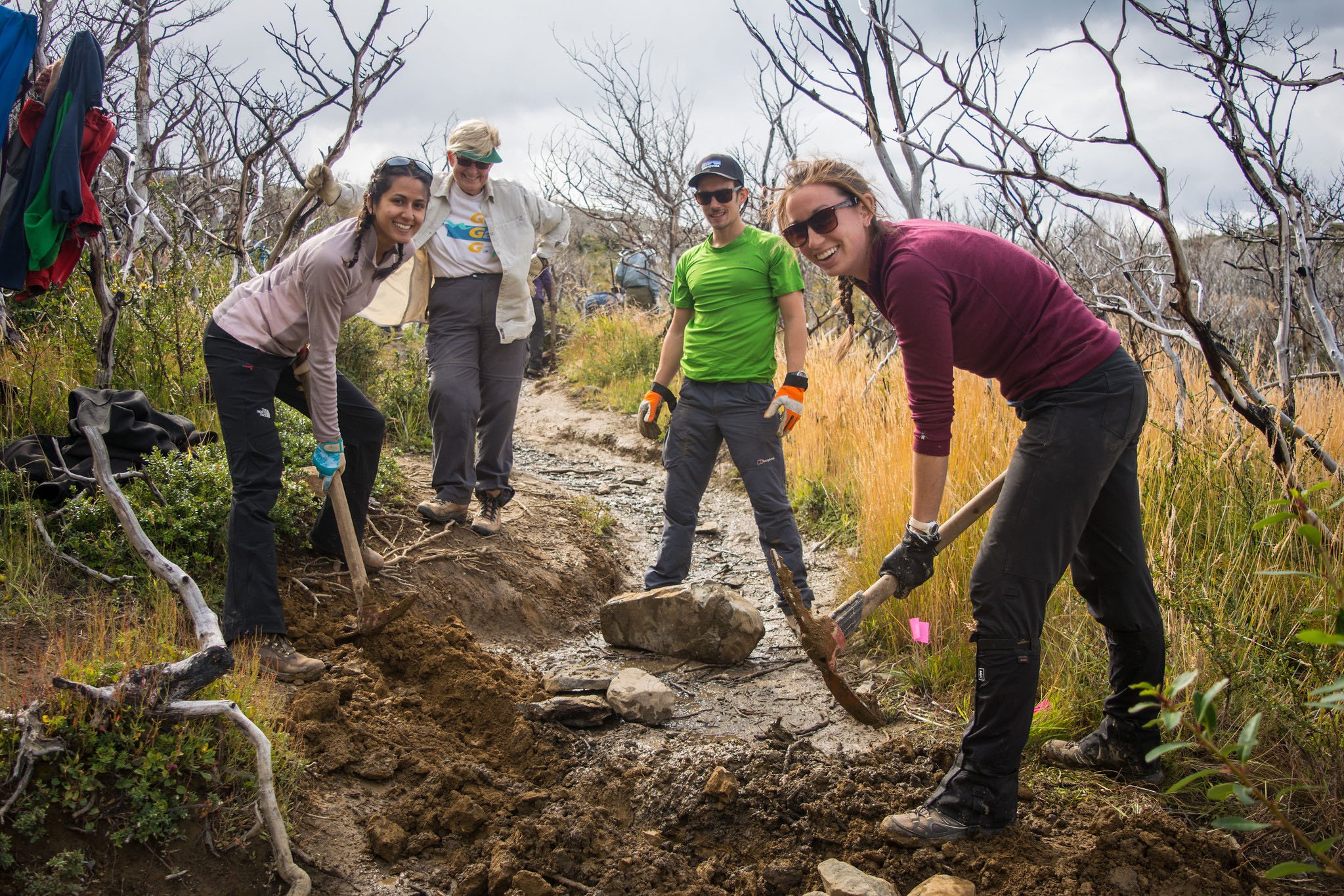
While we promote sustainable tourism, we know our activities do have an impact on the area. There is erosion on the trails of the park, but there is a way to prevent it from happening and we trust the experts. We are proud to collaborate with Torres del Paine Legacy Fund, a local organization that supports trail restoration and reforestation projects. Amongst these initiatives, they built a brand new trail near French Valley, designed with international standards of sustainability and built with volunteers, including team members of EcoCamp! We also support “Tu Mejor Huella”, a project to build a brand new trail to the Towers’ Base – the most famous hike in the park – to minimize erosion and improve the hiking experience.
- Value the local culture
.jpg?width=5236&name=Kawesqar%20(14%20of%201).jpg)
OK, Patagonia is mostly well-known for its “modern” history with the arrival of European settlers mainly in the 19th century. But not everything is about the “gaucho” culture – these Patagonian cowboys working with the sheep in wild conditions. Long before the settlers reached the “Far South”, numerous indigenous tribes were inhabiting the region. The Kaweskar, Mapuche, Selknam, Yagan and Tehuelche were inhabiting the vastness of Patagonia’s plains and islands. EcoCamp was actually born as a tribute to the nomad lifestyle of the Kaweskar, who used to build their dwellings and remove them on the next day (all the domes at EcoCamp were built on wooden platforms and can be removed without leaving a footprint). But while most indigenous cultures of Patagonia went instinct during the 20th culture, the Kaweskar culture is still here. In 2019, an initiative was born in Puerto Natales to protect the Kaweskar culture through a variety of projects: called “Pueblo Kaweskar”, it gathered the remaining members of the Kaweskar community in Southern Chile to relive their culture through handicraft, home-made meals and short excursions. We at EcoCamp partnered with them to value that incredible culture. We welcomed one of the oldest Kaweskar, “Carmela”, so she could share her story with both our guests and team members. Carmela had never visited Torres del Paine National Park: a life-changing experience for everyone.
- Entertain + Educate: the “EcoCamp Talks”
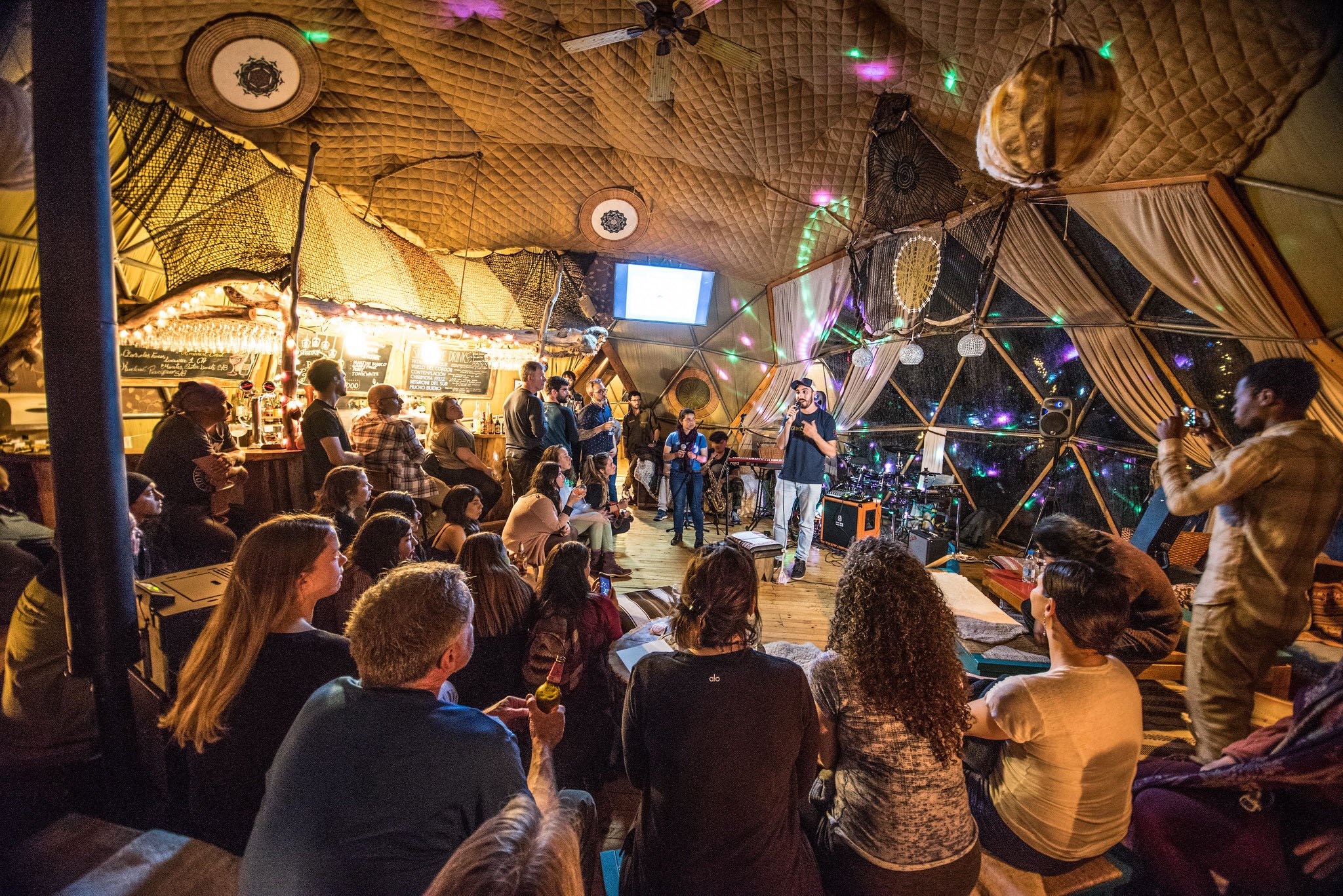
At EcoCamp “there is no WiFi but you will find a better connection”. We love this quote and for a good reason: we chose not to provide internet (except in case of emergency) because we are convinced the experience is far more transformational when travelers can connect to each other…and with the place. Instead we create moments for travelers to share in our Bar Dome. Called “EcoCamp Talks”, these short chats are made by passionate people we invite on purpose to talk about what they do. Whether they are climbers, musicians, stargazers, conservationists, photographers, painters or adventurers, these people all have the same passion for nature. Having them talk at EcoCamp is a way to connect travelers with the place through a social event somewhere special. It’s not only about the talk itself, it’s also about the interaction.
Amongst the most recent talks, we had a BBC wildlife filmmaking crew, artist Alonsa Guevara and climber Cristobal Señoret. So if you come to EcoCamp, make sure not to miss the talks!
Did you enjoy these ideas? Do you have suggestions? Feel free to write them down!

